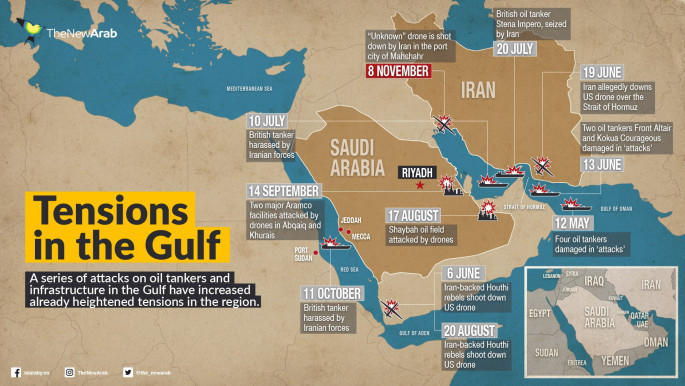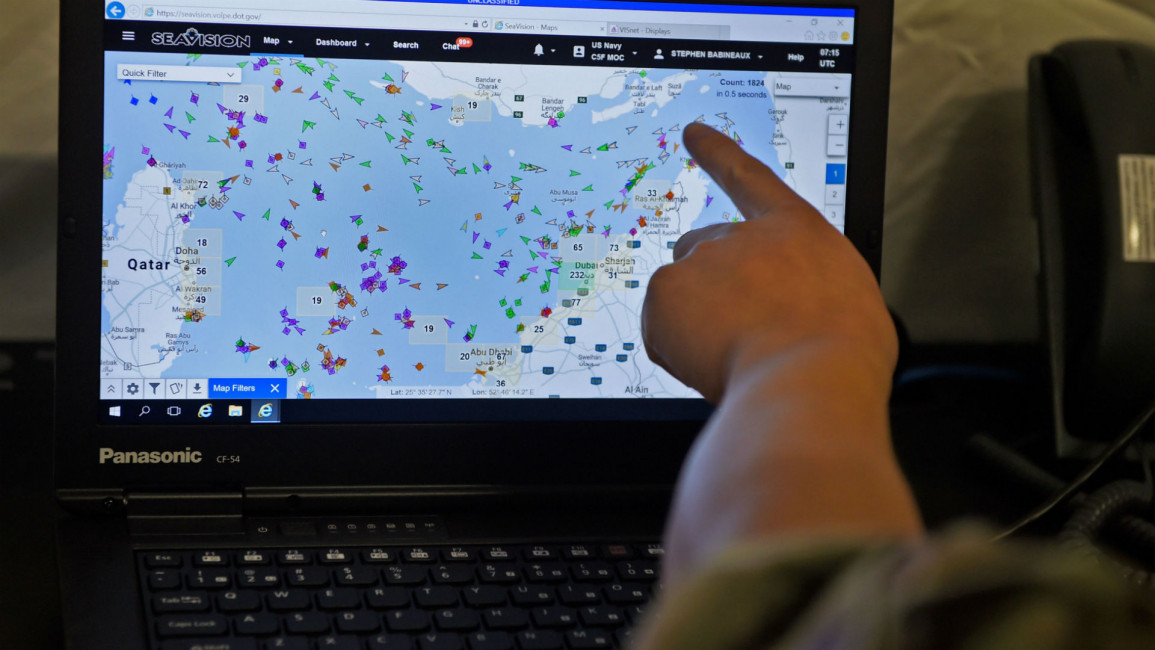France blames spike in Gulf tensions on 'gradual US disengagement'
Since May, tensions in the Gulf have increased with attacks against tankers, a US unmanned drone being downed, and strikes on key Saudi oil facilities.
Iran was blamed but denied involvement.
Despite the attacks on its Saudi ally and on the US' own drones, Washington has avoided equivalent retaliation.
"We’ve seen a deliberate gradual US disengagement," Parly said at the annual Manama Dialogue on regional security, adding it had been "on the cards for a while" but had become clearer.
"When the mining of ships went unanswered, the drone got shot. When that in turn went unanswered, major oil facilities were bombed. Where does it stop? Where are the stabilisers?" she asked.
"The region is accustomed to the ebb and flow of US involvement. But this time it seemed more serious."
Parly said the US drawback was a "slow process" though he acknowledged that a US carrier strike group had just entered the Gulf.
"But the trend is, I think, quite clear and thus probably irrespective of who wins the next elections."
The remarks came as US aircraft carrier strike group Abraham Lincoln sailed through the key Strait of Hormuz last week to show Washington's "commitment" to freedom of navigation, the Pentagon said.
It was the first time a US aircraft carrier group has passed through the strait since Iran downed a US drone in June in the same area.
 |
The Strait of Hormuz, straddled between Iran and Arab Gulf states, is a strategically-significant region where around a third or a fifth of the of the world's oil passes through.
In June, two foreign tankers were attacked in Gulf waters, with Iran put forward as a culprit, while in the same month Tehran downed a US drone.
Saudi Aramco facilities were attacked with drones and missiles in September, an event that sent shockwaves through the kingdom. Iran was again blamed for the attacks.
The events come after heightened tensions when the US pulled out of a nuclear deal with Iran last year and slapped tough sanctions on the country.
'Protecting Gulf waters'
Although no direct hostile action has been taken by Washington, a US-led naval coalition officially launched operations in Bahrain earlier this month to protect shipping in the troubled waters of the Gulf.
The coalition, aimed at warding off the perceived threat to the world's oil supply, has been in the making since June.
Bahrain, which hosts the US Navy's Fifth Fleet, joined the International Maritime Security Construct (IMSC) in August. Saudi Arabia and the United Arab Emirates followed suit in September.
Australia and Britain are the main Western countries to have agreed to send warships to escort Gulf shipping. The newest member, Albania, joined on Friday.
Vessels will be escorted through the Strait of Hormuz, the strategic chokepoint at the head of the Gulf and the main artery for the transport of Middle East oil.
Vice Admiral Jim Malloy, commander of US Naval Forces in the Middle East, said Operation Sentinel is a defensive measure aimed at protecting Gulf waters.
"While Sentinel's operational design is threat-based, it does not threaten," he said during a ceremony at the IMSC's command centre.
"We employ capable warships on patrol, but there is no offensive line of effort in this construct, other than a commitment to defend each other if attacked.
"Our commitment to the region isn't short-lived, it is enduring, and we will operate as part of Sentinel for as long as it's needed - as long as the threat looms."
Most European governments have declined to participate in the naval coalition, fearful of undermining their efforts to save a landmark 2015 nuclear accord with Iran, which was badly weakened by Washington's withdrawal last year.
Iran, which has denied any responsibility for the mystery attacks, has put forward its own proposals for boosting Gulf security that pointedly exclude outside powers.



